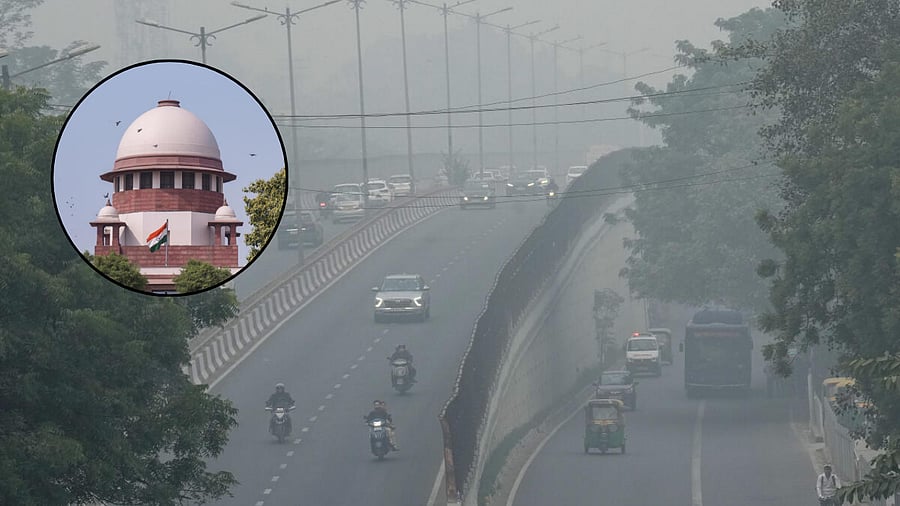
SC declines blanket ban on construction in Delhi NCR despite worsening AQI.
Credit: PTI Photos
New Delhi: The Supreme Court on Monday declined to issue a blanket ban on construction in Delhi and the National Capital Region in view of worsening air quality index, saying it is necessary to balance the environmental concerns with development.
Hearing a matter related with air pollution in the national capital, a bench headed by Chief Justice of India B R Gavai said, “We are no experts".
Emphasising that environmental protection must be balanced with development, the bench said the court is not keen to issue bold directions against the backdrop of worsening air quality in Delhi.
Expressing concern, the court, however, said, in the current scenario, temporary solutions would not work instead the Centre should formulate long term solutions to address the menace of air pollution.
The bench also made it clear that it cannot run Delhi's pollution management every year and the Centre must address the issue, as the primary responsibility lies with it.
The bench said a blanket ban would trigger socio-economic consequences affecting lakhs of families which depend on construction and allied activity for livelihood.
To a query on a complete construction ban, the Centre's counsel said the issue is determining how much pollution can be curbed without affecting human rights.
Senior advocate Gopal Sankaranarayanan, representing a party, urged the court to adopt stricter air quality benchmarks, similar to California, saying millions of people were losing life due to lung cancer.
Additional Solicitor General Aishwarya Bhati, for the Centre, contended that pollution standards followed in developed countries cannot be imposed on developing economies like India. Bhati said countries like the US have already completed industrialisation.
The court said it is not an expert and not keen to issue directions to adopt California-style stringent standards.
The court was told that on November 11, the Union environment minister had met with the environment ministers of Delhi-NCR and another meeting is likely soon in connection with immediate measures.
Among the measures, it was said that water sprinkling took place around pollution monitoring stations to skew the air quality index (AQI) readings in Delhi.
Amicus curiae contended that many monitors max out at an AQI of 999, and as a result they are incapable of recording deterioration of air quality beyond the maximum limit.
The bench directed the Centre to bring on record the type of devices used, their efficiency, and whether they meet global standards by November 19. The court also asked the Delhi government to file an affidavit in this regard.
